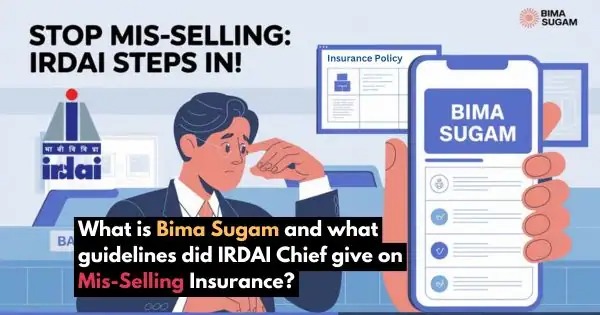K.T. Thomas, Actg. C.J.
1. Maharaja''s College, Ernakulam is a pristine and celebrated educational institution in Kerala owned and administered by the State Government. It is situated at a prime location in the city of Cochin. The massive building for housing this institution had been built in indigenous but gorgeous architecture and it spreads over in the sprawling compound which abuts on three sides by public roads. In the year 1973 Government of Kerala had assigned 5 cents of the college land to a Society called "Kerala History Association" (for short ''the Association'') for constructing a building for the activities of the Association. The said plot of 5 cents is located on the extreme northern portion abutting a public road called "hospital road". When the Association found it difficult to raise funds to put up the edifice designed by them they approached the Government for permission to rent out a portion pf the edifice in order to raise funds. By Ext. P-3 order Government sanctioned it. Ext. P-3 is being challenged under Article 226 of the Constitution for which purpose three different organisations which are closely linked with Maharaja''s College have joined together. One is the Parent Teacher Association and the other is the Aluani Association and the third is the College Student''s Union. We have no doubt that Petitioners are genuinely interested in the well being of their "Alma Mater", and that their grievance deserves serious ruminative exercise.
2. Learned Single Judge before whom the Original Petition came up did not agree with the contentions of the Petitioners and dismissed the Original Petition. This appeal is, therefore, moved by the aforesaid three organisations jointly.
3. The main plank on which Shri. S.A. Nagendran, learned senior Counsel (who was instructed on behalf of the Appellants) addressed arguments is that Ext. P-3 is bereft of public interest and hence is liable to be quashed. According to him, since Ext. P-3 does not mention that it was issued in public interest, it is prima facie, sufficient to conclude that the order was not made in consideration of public interest. He further contended that as the order is silent about the crucial aspect the deficiency cannot be replenished through the affidavits filed in to the challenge made against the order. In support of the contention, learned senior Counsel invited our attention to the decision reported in
4. To appreciate the contention, we bear in mind the basic fact that Appellants have not challenged Ext. P-2 order which. Government passed in 1973 as per which the plot of 5 cents of land has been assigned in favour1 of the Association. In other words, there is no dispute that Ext. P-1 was ordered in public interest. However, it is to be noted that Government had imposed some conditions in Ext. P-1 such as Association''s obligation to afford research facilities to one student who takes M.A. Degree in History. Another condition is that the assigned plot should life enclosed by a compound wall and that the land "shall riot be alienated or the space rented out." The building which the Association puts up on the plot shall conform to the rules regarding provisions for the set back from public road.
5. Another fact to be borne in mind is that from 1973 till 1993 the Association failed to construct the building. Ext. P-3 shows that the association made a request to the Government to modify the condition prohibiting lease of the building and they prayed that the Association may be allowed "to raise funds for construction of a building by giving a portion of it on rent".
6. Power of the Government to grant assignment is not questioned before us. Rule 24 of the Kerala Land Assignment Rules empowers the Government to assign Land dispensing with any of the provisions contained in the rules and subject to such conditions as Government may impose "if they consider it necessary so to do in public interest".
7. Learned Single Judge pointed out that the said power includes the power to alter or modify the order issued. Learned Single Judge made a reference to Section 21 of the Kerala General Clauses Act to show that power of the Government to issue an order includes the power to alter or modify or even to rescind it.
8. Shri. S.A. Nagendran, learned senior Counsel, contended that Section 21 of the General Clauses Act should not have been invoked in the context. However, learned Counsel submitted that since Rule 24 of the Land Assignment Rules is a self-contained provision, Government have inherent power to modify or cancel the order. Hence we do not_ think it necessary to consider the scope of application of Section 21 of the General Clauses Act.
9. The argument that Government should state in every order that the same was issued in public interest is too broad a proposition for acceptance. No doubt if a statutory provision requires that it should be so mentioned, Government cannot override it. In other cases if public interest can be discerned from the order from the files or from other materials the order cannot be rendered invalid merely because it is not so stated in the order1 itself in so many words. Rule 24 does not enjoin that the order of assignment or its modification should contain the words "public interest". Nonetheless public interest can be discerned from the order itself and it is not disputed before us that Ext. P-1 was issued in public interest. In such circumstances, there is nothing illegal in presuming that modification of the condition in Ext. P-1 was also motivated by the governmental desire to help public interest. The burden is on its challenger to satisfy that the modification was done with any oblique motive.
10. The decisions cited by the learned senior Counsel did not lay down as a principle of law that what is ordered by the Government or public authority cannot be elaborated by the propounders through the affidavit filed in the Court when such orders are challenged. The above cited decisions have projected a principle that an order which was bad in the beginning shall not be allowed to get validated through additional grounds later brought out when the validity of the order is challenged. Such a post-operative exercise was deprecated by the apex Court in
11. As pointed out earlier, Ext. P-1 was issued for enabling the Association to construct a building for the effective functioning of the Association. Yet Ext. P-1 remained in stupor for nearly two decades due to financial crunches of the Association. Members of the Association contemplated various measures to raise funds in order to accomplish the object. When they came across the present suggestion for renting out a portion of the building (yet to be constructed) to an outsider, they noticed that the said measure cannot be resorted to in view of the condition in Ext. P-1 that the space shall not be rented out. It is in the wake of this constraint that the Association approached Government for relaxation of the condition in such a manner as to enable them to raise funds. The representation received serious consideration by the Government and Ext. P-3 was issued in relaxation of the condition to the effect that a portion of the building which would be constructed can be given on rent as requested by the Association.
12. We are thus able to discern that Government issued Ext. P-3 with the intention of helping the Association to carry out the purpose for which Ext. P-1 was issued. Learned Counsel for the Appellants however contended that object of Ext. P-3 is to enable a businessman to conduct hotel business in the premises and location of such a hotel on the site of such a prime educational institution would mar the college atmosphere very badly. Sri. T.P. Kelu Nambiar, senior Counsel (who argued for the Association) while pointing out that it is not a hotel business that is now being contemplated, addressed arguments to substantiate that even if a hotel comes in a portion of the multi-storeyed building, it would only enure to the advantage of the students. It is made clear that the said business would face only the public road and there would not be access to the college campus.
13. After bestowing our serious consideration, we could not find any valid reason to interfere with Ext. P-3. Be that as it may, we have to advert to Anr. grievance of the Appellants that the Association has grabbed more than 5 cents under the cover of Ext. P-1 order. Third Respondent, District Collector, Ernakulam, has assured that steps would be taken to measure out the aforesaid 5 cents and appropriate measures would be taken to ensure that more than 5 cents would not go to the Association. While disposing of this appeal, we direct the 3rd Respondent to report to the Court within three months as to the steps taken for that purpose.
Writ appeal is disposed of accordingly.

